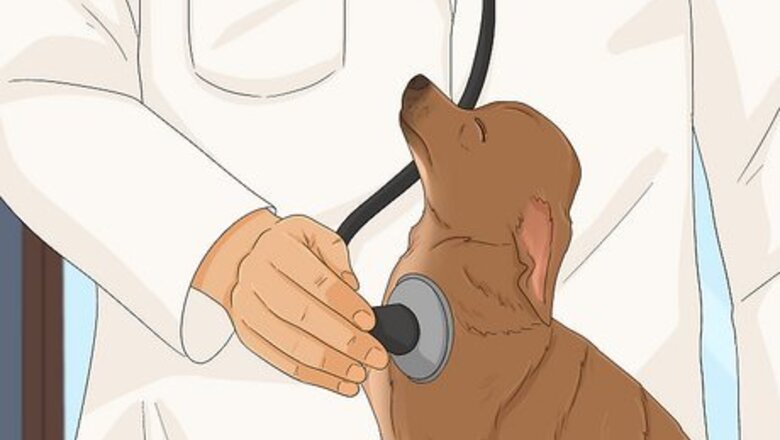
views
Ensuring Your Dog is Healthy
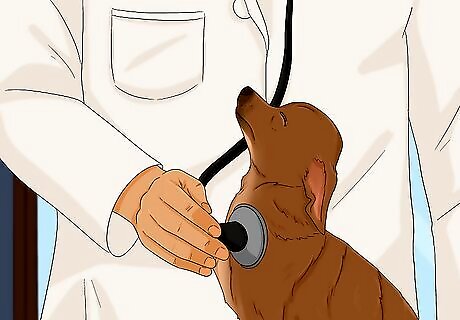
Take a trip to the vet. If your Chihuahua is a normal, regular eater and stops eating within a short period of time, i.e., a week, this can indicate a problem. Inappetence is a symptom of many dog illnesses. If this is your dog, then you need to take it to the vet immediately, especially if it is coupled with weight loss, and/or vomiting and diarrhea. Hormonal changes, such as females in heat, could also be a reason for why your dog is eating less. For example, cramping and mood swings can cause a decrease in appetite. However, eating less during a few weeks twice per year is not something to be concerned about.
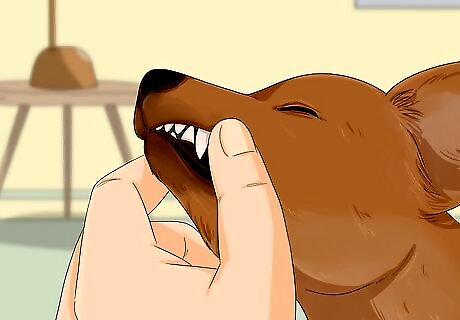
Examine your dog's mouth. Teeth, gum, and mouth problems can also decrease your dog’s appetite. Check your dog’s mouth for bad teeth, foreign objects, sores, or growths. If this applies to your dog, take it to the vet immediately. Pawing at the mouth, as well as refusing to eat are signs that your dog might have a toothache or an infection in its mouth.
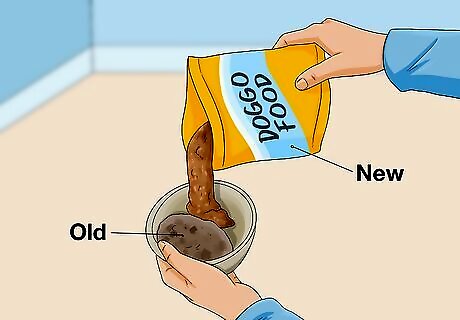
Switch foods gradually. Have you switched dog food brands recently? If so, this could be the cause of your dog’s picky eating habits. It is certainly ok to switch your dog’s food, but you must do so gradually. If not, it can cause digestive issues, which can cause your dog to eat less or skip meals. Gradually switch your dog’s food by: Mixing ¾ of the old food with ¼ of the new food the first week. Mixing ½ of the old food with ½ of the new food the second week. Mixing ¼ of the old food with ¾ of the new food the third week. Mixing 1/8 of the old food with 7/8 of the new food the fourth week. Feeding it 100% new food the fifth week and on.
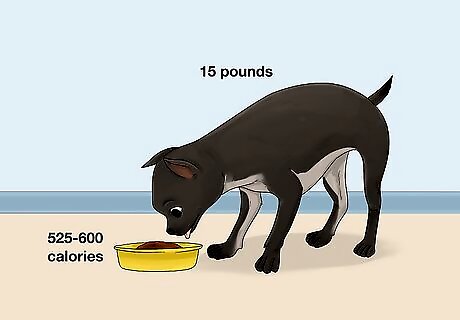
Feed your dog two small meals a day. Because Chihuahuas are small dogs, feed your adult Chihuahua two small meals spaced apart, i.e., one in the morning and one in the evening. A healthy, adult Chihuahua typically needs 35 to 40 calories per pound of body weight. For example, if your Chihuahua weighs 15 pounds and has a healthy Body Condition Score (BCS), it will need to consume 525 to 600 calories per day. If a cup of dry dog food contains 200 calories, then you will need to feed it 1.25 to 1.5 cups of dog food twice a day. This would need to be adjusted if your Chihuahua is overweight or underweight.
Feeding Your Dog a Healthy Diet
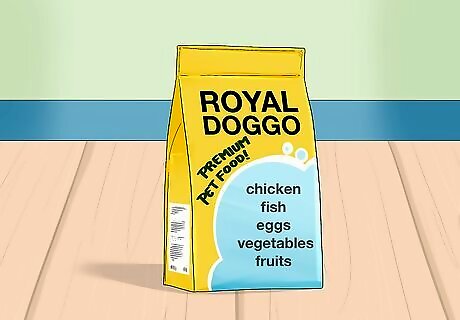
Feed your dog high-quality commercial brands. Chihuahuas have a low tolerance for food that is high in preservatives, by products, and artificial coloring. Many low-quality, cheap commercial brands contain these elements. Artificial coloring and preservatives can cause digestive issues. Instead, choose a high-quality commercial brand that is a little more expensive. These brands are less likely to have fillers, such as by products, and preservatives. They are more likely to have ingredients that promote health, such as chicken, fish, eggs, vegetables, and fruits.
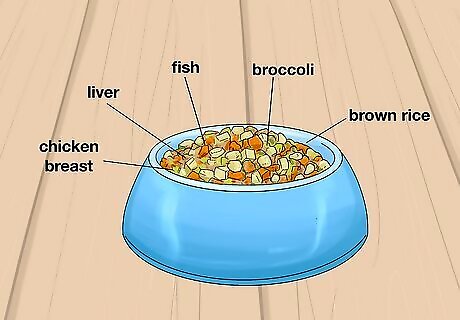
Make homemade meals. Another option is to make your dog homemade meals. This way, you can control what your dog eats and you can offer your Chihuahua a nutritious diet. Make sure to consult a board certified veterinary nutritionist before deciding what homemade meals to serve your dog to ensure that its nutritional needs are met. When cooking home meals, meat should be the priority at 40%, followed by vegetables and fruit at 30%, and carbohydrates at 30%. Some of the best ingredients to use are: Organs: kidney, liver, and brain organs. Lean meats: hamburger, white breast chicken, and fish. Vegetables: potatoes, baby carrots, broccoli, spinach, and zucchini. Fruits: blueberries, raspberries, and apples (make sure to remove the core). Carbohydrates: white or brown rice, and pasta.
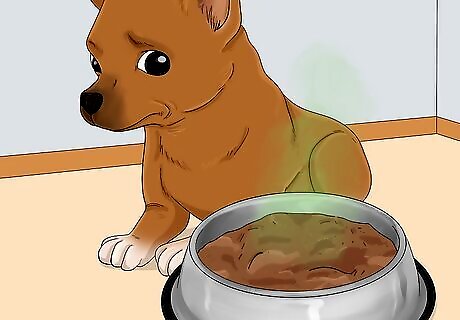
Ensure food is not expired. Expired food could also be a reason for why your Chihuahua is being a picky eater. Therefore, always be aware of the expiration date of your dog’s food. If the dog food is expired, it is time to buy a new bag of food. Stale food is also unappealing. If your dog is not finishing its meal, decrease the amount of food you put out.
Correcting Finicky Behavior
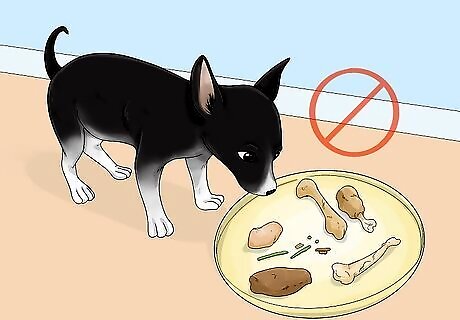
Stop feeding your dog human food. One of the most common causes of picky eating in dogs is feeding your dog human food, especially from your plate. Human food is also high in fat and difficult for some small dogs to digest, making them more prone to pancreatitis, or inflammation of the pancreas. Stop feeding your dog table scraps and restrict your dog’s diet to its proper food. To make your dog’s food more appetizing, pour warm broth over your dog’s dry food before serving. You can also mix in some wet food with the dry food, as well. Always re-heat any homemade meals before serving them to your dog.
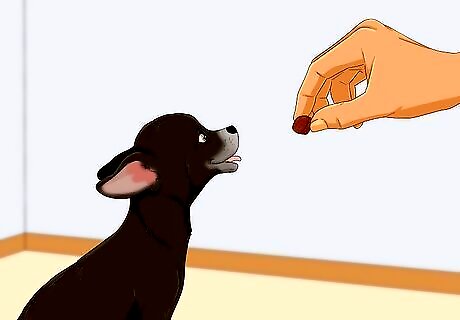
Limit treats. Indulging your Chihuahua with an excessive amount of treats is also another common reason why dogs become picky eaters. Treats are a lot tastier than regular dog food. Your dog will learn to wait for the treats instead of eating its regular food. Too many treats can also lead to weight issues. Keep a treat jar in your kitchen so you can monitor you many treats are given per week. Give treats only as specific behavioral rewards.
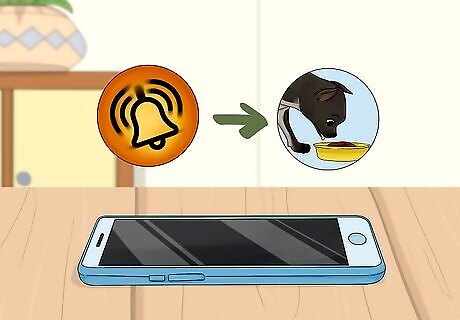
Stick to a feeding schedule. Stop feeding your dog table scraps and treats, and stick to a daily, scheduled feeding routine instead. Help your dog understand that no options exist. Create a scheduled, feeding routine by: Putting down the proper amount of food at a regular time each day. For example, 8 a.m. and 7 p.m. Setting out your dog’s food for 30 minutes. If your dog does not eat it, take it away. Setting out the food again for the next mealtime. Whether it has been eaten or not, take it away after 30 minutes. Not giving in. Your dog is not starving. If it is hungry, it will eat.
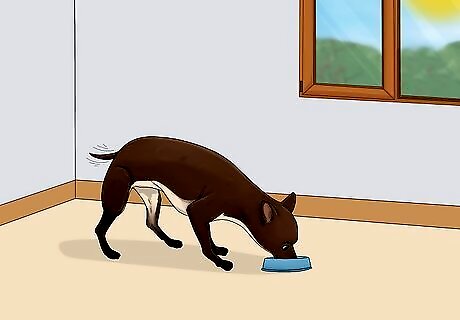
Create a quiet place to eat. Make sure your dog’s feeding area is in a quiet, traffic-free area in your house or yard. If your dog’s water and food bowls are in a noisy area, where you and your family members frequently walk, this could be the cause of the picky eating. Place your dog’s bowl in a quiet corner in the kitchen or the laundry room. Also, feed your dog during times that are quiet and calm, like early in the morning or after dinner.




















Comments
0 comment